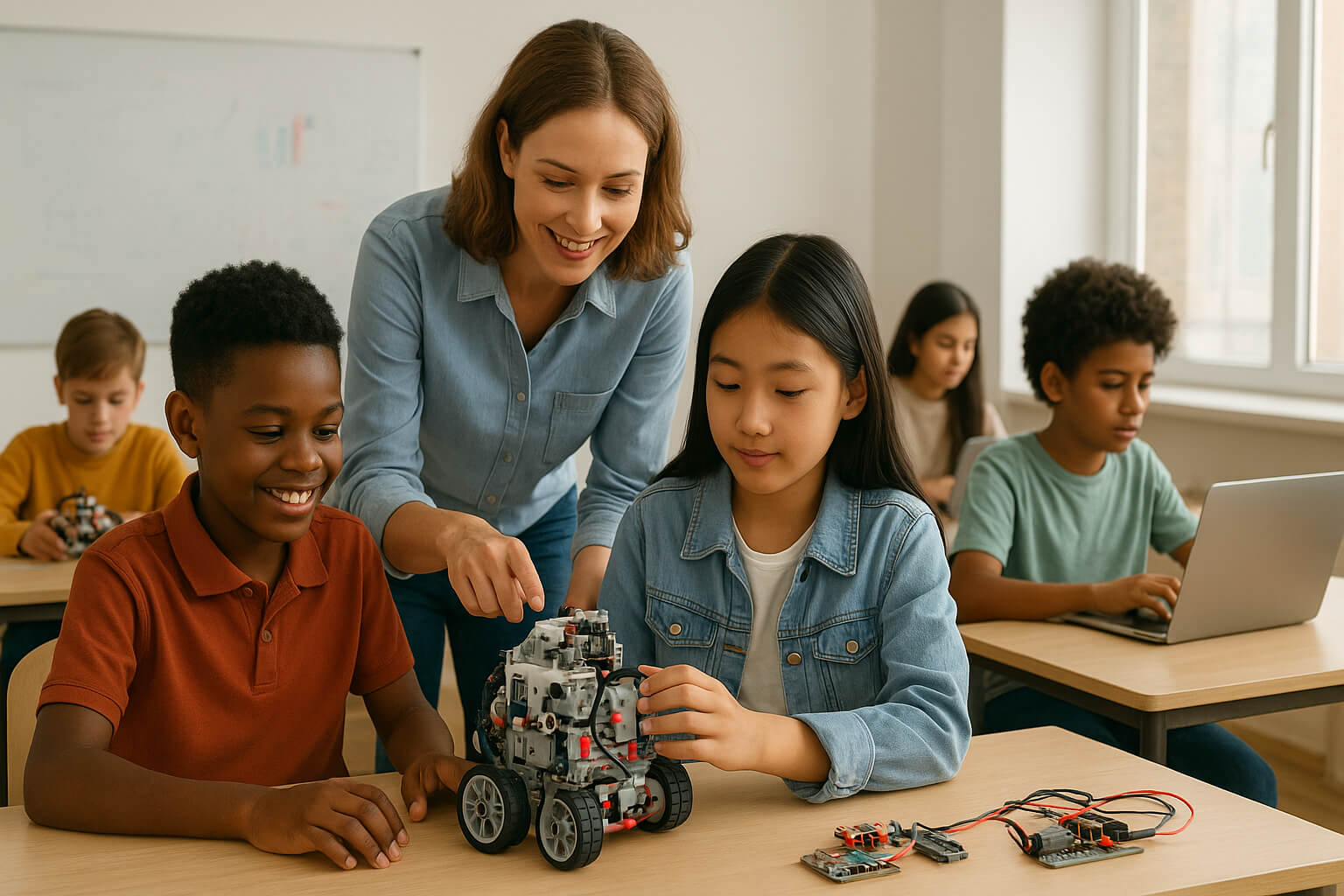STEM Education: Preparing Youth for the Future

In today’s rapidly evolving world, STEM education (Science, Technology, Engineering, and Mathematics) plays a pivotal role in equipping young people with the skills necessary to thrive in the future workforce. As industries transform under the influence of artificial intelligence, robotics, and digital technologies, preparing students with a strong STEM foundation has never been more important.
Why STEM Education Matters
- STEM goes beyond teaching formulas and theories—it fosters critical thinking, problem-solving, creativity, and innovation. According to the National Science Foundation, students exposed to STEM early on are more likely to pursue careers in science and technology-related fields. This directly contributes to national growth and global competitiveness.
- Moreover, many of the fastest-growing careers, including data science, renewable energy, software engineering, and biotechnology, rely heavily on STEM knowledge. By prioritizing STEM education, societies empower youth to adapt to a changing economy. This transformation aligns with trends highlighted by platforms like Code.org, which are working hard to equip the next generation of coders and engineers.
STEM’s Role in Closing Opportunity Gaps
- STEM education is also a powerful tool for social mobility and equity. Unfortunately, many underprivileged communities lack access to high-quality STEM resources, further exacerbating existing inequality. Programs such as Code.org and FIRST Robotics are working to bridge this gap by providing coding, robotics, and digital literacy education to underserved students.
- Giving all children access to STEM opportunities helps dismantle systemic barriers and enables them to break cycles of poverty. As we saw during the pandemic, access to technology and tech-driven education became crucial for academic success. By ensuring equal access to STEM learning, we are opening doors to high-paying, in-demand careers that were once out of reach for many.
Preparing Youth for the Future Workforce
The World Economic Forum predicts that by 2030, more than 1 billion people will need to be reskilled due to automation and AI. This highlights the urgency of teaching youth adaptable skills that will remain relevant in the future:
- Analytical Thinking – Breaking down problems and identifying patterns.
- Digital Literacy – Understanding coding, cybersecurity, and emerging tech.
- Collaboration – Working across disciplines to innovate.
- Creativity – Applying knowledge in unique ways to design new solutions.
By incorporating STEM principles into education, schools can ensure students leave prepared for both college and careers. This reskilling will be essential in an era dominated by rapid technological advancement, ensuring that the workforce is not left behind.
Making STEM Engaging for Youth
- To spark interest in STEM, education should be hands-on and experiential rather than purely textbook-based. Platforms like Khan Academy provide free online resources that allow students to explore topics at their own pace. Additionally, platforms such as Scratch make learning to code fun and interactive, especially for younger students. These tools help demystify complex topics, making them more accessible and enjoyable.
- Encouraging project-based learning—such as building robots, designing apps, or conducting scientific experiments—makes STEM exciting. This method also develops critical teamwork and leadership skills, fostering collaboration and problem-solving, skills that will be vital in any career.
Conclusion
STEM education is not just about preparing students for jobs—it’s about preparing them for life. It equips young minds with resilience, adaptability, and innovation to face challenges in an increasingly uncertain world. By making STEM accessible and engaging, we can inspire the next generation of scientists, engineers, and creators who will drive progress in society. As we see through initiatives by FIRST Robotics, Code.org, and others, the future of our workforce lies in the hands of young individuals who can adapt, innovate, and solve problems with the tools of tomorrow.
